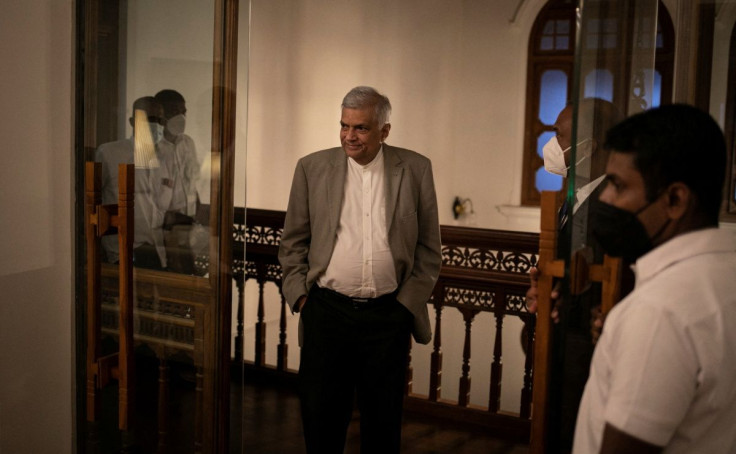Factbox-Three Frontrunners In Race To Become Sri Lanka's Next President

A six-time prime minister, the leader of the main opposition party and a journalist-turned-politician from the ruling party are vying to become Sri Lanka's next president, after the incumbent Gotabaya Rajapaksa fled the country this week.
Sri Lanka's parliamentary speaker will convene the legislative body after receiving Rajapaksa's official resignation and its 225 members will vote to elect a new president, likely next week.
The winning candidate must secure a simple majority within parliament, but also gain the confidence of hundreds of thousands of Sri Lankans who have participated in the protest movement - known as the "Aragalaya", or "struggle" in Sinhala - that led to Rajapaksa's ouster.
PRIME MINISTER
Ranil Wickremesinghe, who took office as prime minister for the sixth time in May and has been appointed acting president, is among the aspirants for the top job, two political sources said.
Although Wickremesinghe's party holds only one seat in parliament, sections of Sri Lanka's ruling Sri Lanka Podujana Peramuna (SLPP), including the president's brother Basil Rajapaksa, are backing him, the sources said.
An SLPP official said that party members felt Wickremesinghe - who is also the country's finance minister - has a good handle on the economic challenges facing Sri Lanka.
Wickremesinghe was involved in talks with the International Monetary Fund (IMF) for a bailout package and a new budget.
But the 73-year-old politician remains deeply unpopular among many protesters, hundreds of whom clashed with security forces and occupied his office this week.
OPPOSITION LEADER
Sajith Premadasa, 55, leader of the main opposition Samagi Jana Balawegaya (SJB) party, is another contender in the fray. But with only around 50 lawmakers in parliament, he will need to build bi-partisan support to stand a chance.
Premadasa studied at the London School of Economics and entered politics after his father, President Ranasinghe Premadasa, was assassinated in a suicide bombing in 1993.
He entered parliament in 2000, later serving as Sri Lanka's deputy health minister. In 2018, he was appointed minister of housing construction and cultural affairs.
"The SJB parliamentary group voted to nominate Sajith Premadasa because he understands the depth of the people's suffering and has always supported the call from them for change," said Eran Wickramaratne, a senior member of the SJB, which has also built links with the Aragalaya protest movement.
"This government has clearly lost its mandate and it is time we listen to the people," Wickramaratne said.
FORMER JOURNALIST
The third frontrunner and potential dark horse is Dullas Alahapperuma, a senior lawmaker from the SLPP who had gained traction among a section of his party colleagues.
The ruling party has about 117 votes that could be used to field a candidate like the 63-year-old former journalist and get him across the line, SLPP lawmaker Charitha Herath said.
Alahapperuma, who entered parliament in 1994, served as the minister of mass media and a cabinet spokesperson but resigned in April when President Rajapaksa dissolved the cabinet after protesters surrounded his private residence.
"I'm a pragmatist. We need a candidate who is acceptable to the Aragalaya and the larger public but someone who can also get parliamentarians' approval," said Herath.
"It is not easy to get such a person," he said. "Dullas would be a formidable and practical option."
© Copyright Thomson Reuters 2024. All rights reserved.





















